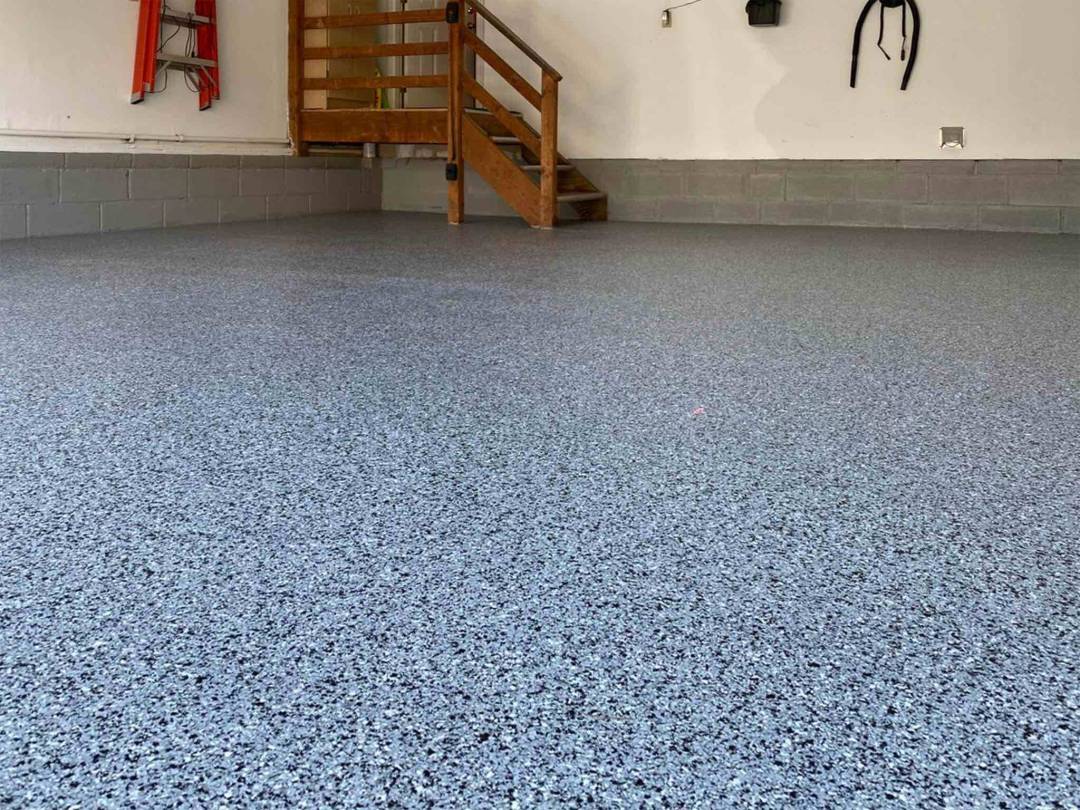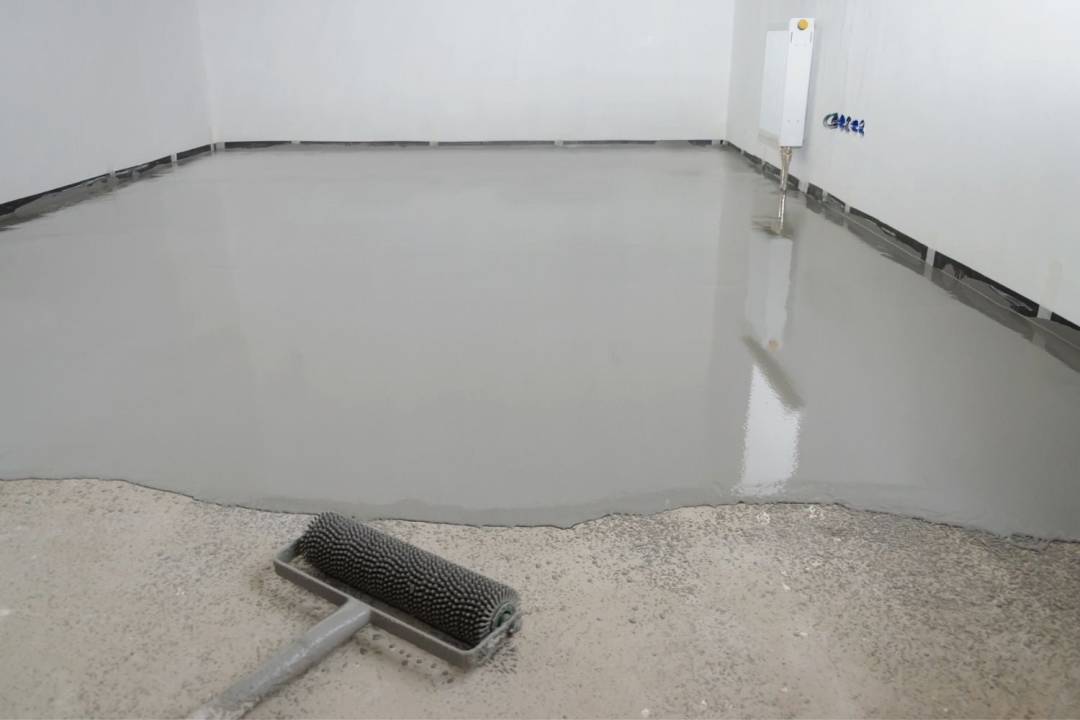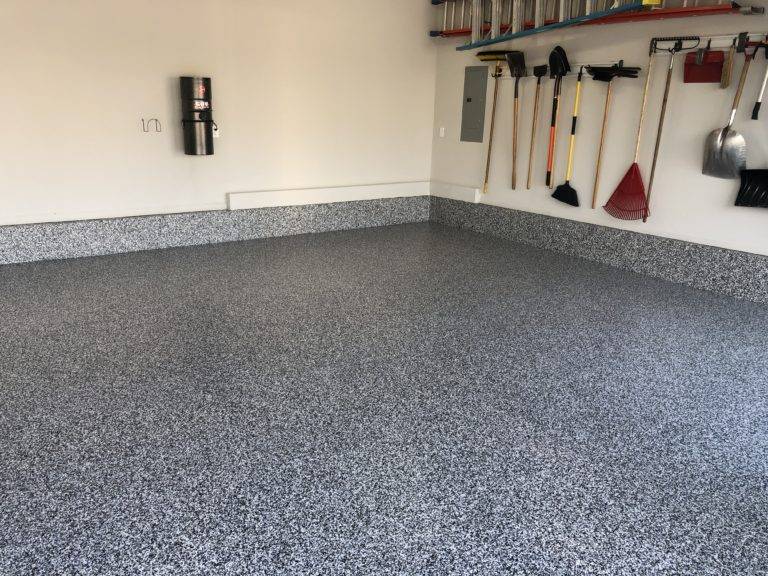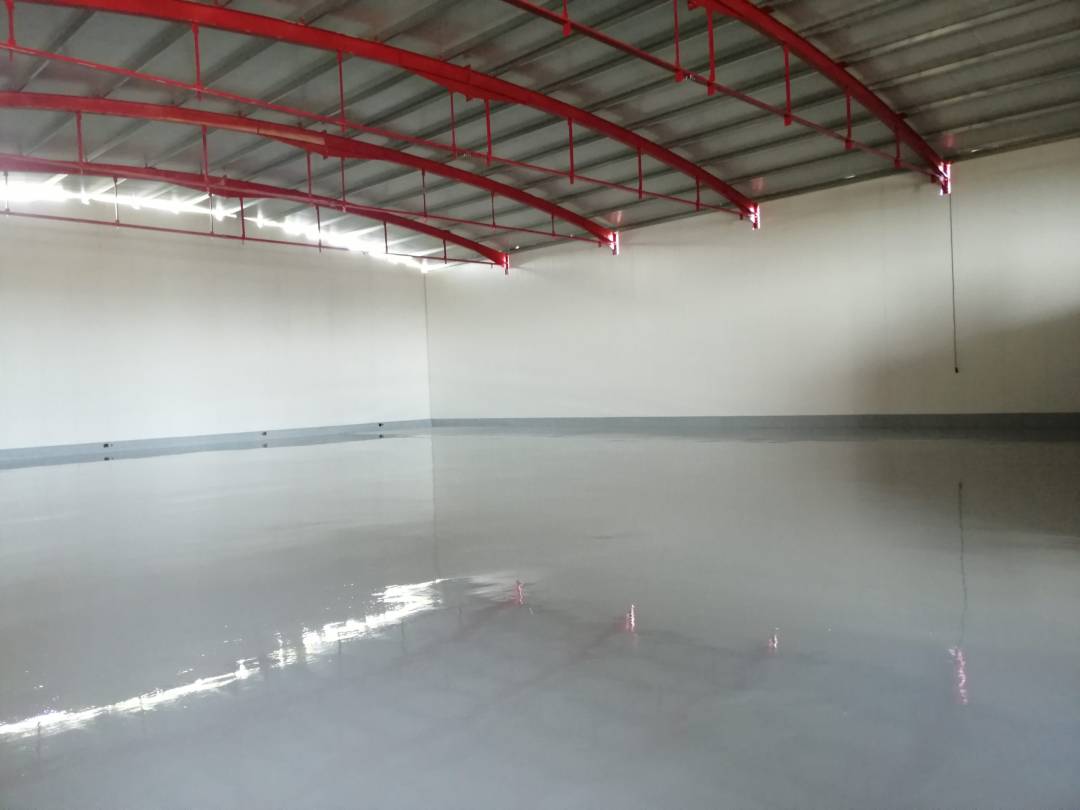Garage Floor Epoxy - What You Need To Know Before Going DIY
Are you considering laying down a brand new epoxy floor in your garage, but aren't sure where to start? Read our guide on garage floor epoxy before you start.
When it comes to garages, most homeowners never do anything to the floor. They keep the same concrete floor it came with when buying the property.
Over time, that concrete floor starts to really show the signs of wear and tear. Tyre marks, oil stains, and cracks in the concrete are just a few of the signs that it's time to give a garage floor an upgrade.
If this sounds like your garage floor, one popular solution is epoxy. This versatile chemical resin can be used for coatings, adhesives, and sealants. Before you commit to an epoxy floor, we've gathered the essential information in this guide.

So why should you choose epoxy instead of floor paint?
Unlike paint - which must dry - epoxy cures. When you mix the two components (epoxy resin & polymin hardener), a chemical reaction happens which makes the substance hard. This curing process gives epoxy superior strength and durability. The end result is a coating that is much thicker than paint and is extremely durable.
With so many different types of epoxies available, it can be overwhelming trying to choose the right one for your garage floor.
The three main types of epoxy coating are 100% solid epoxy, water-based epoxy coating, and solvent-based epoxy coating. Let's take a closer look at each type and their benefits.
If you want to ensure that your garage floor is anti-slip, it's recommended you apply colour flakes between two coats of epoxy.
Read article

Epoxy is a popular choice for garage floors and industrial structures for good reason. Here are some of the advantages you can expect when you choose epoxy for your property:
Read article

While there are many advantages to using epoxy for your garage floor, it's important to be aware of its constraints as well:
Read article

Before applying epoxy coating to your garage floor, it's essential to properly prepare the surface to ensure optimal adhesion and longevity. Here's how to do it:
Read article
Epoxy can be expensive, but it’s an investment that will last for many years. Depending on how long you intend to use our garage for, the cost may well be worth it.
For a big double garage, the cost of epoxy resin and professional installation ranges from £900 to £3,000. It's important to remember that a flawless installation is crucial for ensuring durability. It's best to call in a professional, unless you're very handy and confident in your DIY skills.
Here is a much more in-depth guide about the price of epoxy flooring that you may find helpful.
If you need to move the things stored in your garage elsewhere while you lay down epoxy, Stashbee has garages to rent all over the UK.
Over time, that concrete floor starts to really show the signs of wear and tear. Tyre marks, oil stains, and cracks in the concrete are just a few of the signs that it's time to give a garage floor an upgrade.
If this sounds like your garage floor, one popular solution is epoxy. This versatile chemical resin can be used for coatings, adhesives, and sealants. Before you commit to an epoxy floor, we've gathered the essential information in this guide.
Rent my Garage
See how much you could be earning from your garage
Rent my GarageDifferent types of Garage Floor Epoxy

So why should you choose epoxy instead of floor paint?
Unlike paint - which must dry - epoxy cures. When you mix the two components (epoxy resin & polymin hardener), a chemical reaction happens which makes the substance hard. This curing process gives epoxy superior strength and durability. The end result is a coating that is much thicker than paint and is extremely durable.
With so many different types of epoxies available, it can be overwhelming trying to choose the right one for your garage floor.
The three main types of epoxy coating are 100% solid epoxy, water-based epoxy coating, and solvent-based epoxy coating. Let's take a closer look at each type and their benefits.
- 100% solid epoxy - the most durable option. It requires two coatings of pure resin. It creates a thick flooring that can withstand hot tyres, scratches, oil, and chemical spills. This is a great choice for a large indoor area like a double garage, and it can last up to twenty years.
- Water-based epoxy floor coating or waterborne epoxy, is the eco-friendly option. It contains around 40-60% solid epoxy and is thinner than the 100% option, making it easier to apply. This is the best choice for a DIY coating.
- Solvent-based epoxy coating is stronger and thicker than water-based epoxy and just as easy to apply. However, it contains a high level of VOCs (volatile organic compounds), so it's essential to wear a respirator while using it.
If you want to ensure that your garage floor is anti-slip, it's recommended you apply colour flakes between two coats of epoxy.
Related
Garage Door Installation in London - The Stashbee guide
The Benefits Garage Floor Epoxy

Epoxy is a popular choice for garage floors and industrial structures for good reason. Here are some of the advantages you can expect when you choose epoxy for your property:
- It's high quality. When applied correctly, epoxy is almost indestructible. It can resist oil, petrol, acids, grease, bleach, and more. Epoxy floors can last a lifetime and at least 15 years without even changing colour.
- It looks amazing. One of the top reasons people choose epoxy is because it enhances the look of your garage. With a smooth, gloss finish, uniform, and clean appearance, there's a wide variety of epoxy flooring colours and styles to choose. These include terrazzo, flake, mirror, metallic, and more.
- It's really easy to clean and maintain. Epoxy floors stay largely dirt and dust free, and don't accumulate bacteria because of their impenetrable nature. This is why they are used in laboratories and hospitals. Cleaning is as easy as a simple mop, so your garage will stay spotless.
- It's abrasion and scratch-resistant. Tires, rolling toolboxes, and stands will not damage your floor. Epoxy resists heat, cold, wet and dry weather. You can even add anti-slip aggregate to to make the surface non-skid.
Related
The Ultimate Guide to Choosing the Best Garage Workbench UK
The drawbacks of Garage Floor Epoxy

While there are many advantages to using epoxy for your garage floor, it's important to be aware of its constraints as well:
- It can be expensive. Epoxy is a premium flooring option that is more costly than simple paint due to its durability and long-lasting nature. While it's possible to paint the garage floor yourself, hiring a reputable contractor for a high-quality installation can be expensive. If you're buying good flooring materials, which is advisable, these too can also be costly.
- Epoxy floor paint is a dangerous chemical, and can be hazardous to your health. Take extra safety precautions if you plan to coat your garage floor yourself. Fresh resin can cause allergic reactions like skin and eye irritation. The chemical reaction that allows epoxy to set is thermal, which can cause chemical burns. Always wear gloves and a respiratory mask whilst near fresh epoxy
- Epoxy garage floor paint can be difficult to install. Epoxy can be complicated to apply, often requiring a professional contractor and specialised equipment. It can take 1-3 days, or even longer, for the product to fully cure, depending on the environment. Be prepared to free up your weekend for this project!
Related
Garage Roof Replacement – A Stashbee Guide
How to prepare your garage floor for epoxy coating

Before applying epoxy coating to your garage floor, it's essential to properly prepare the surface to ensure optimal adhesion and longevity. Here's how to do it:
- Clear the floor: Start by removing everything from your garage floor, including cars, furniture, and other items. This will give you a clear and accessible area to work on.
- Clean the floor: Sweep and vacuum the floor to remove any dust, dirt, and debris. Then, use a degreaser and a stiff-bristled brush to thoroughly clean the surface, paying special attention to areas with oil, grease, or other stains. Rinse the floor with a pressure washer or hose and allow it to dry completely.
- Repair any damage: Inspect the floor for any cracks, holes, or other damage. Use a concrete patching compound to fill in any imperfections and smooth them out with a trowel. Allow the compound to dry completely before proceeding.
- Etch the floor: Use an etching solution, such as muriatic acid or a commercial etching product, to roughen the surface of the floor and create a better bond with the epoxy. Follow the manufacturer's instructions carefully and wear protective gear, including gloves and a respirator.
- Rinse and dry the floor: Rinse the floor thoroughly with a pressure washer or hose to remove any remaining etching solution. Allow the floor to dry completely before proceeding.
Related
How to Insulate a Garage
How much does Garage Floor Epoxy Cost?
Now that we've covered the basics about garage floor epoxy, let's talk about the cost.Epoxy can be expensive, but it’s an investment that will last for many years. Depending on how long you intend to use our garage for, the cost may well be worth it.
For a big double garage, the cost of epoxy resin and professional installation ranges from £900 to £3,000. It's important to remember that a flawless installation is crucial for ensuring durability. It's best to call in a professional, unless you're very handy and confident in your DIY skills.
Here is a much more in-depth guide about the price of epoxy flooring that you may find helpful.
If you need to move the things stored in your garage elsewhere while you lay down epoxy, Stashbee has garages to rent all over the UK.
Rent my Garage
See how much you could be earning from your Garage
Rent my GarageAnthony
Written 13th Apr 2023
